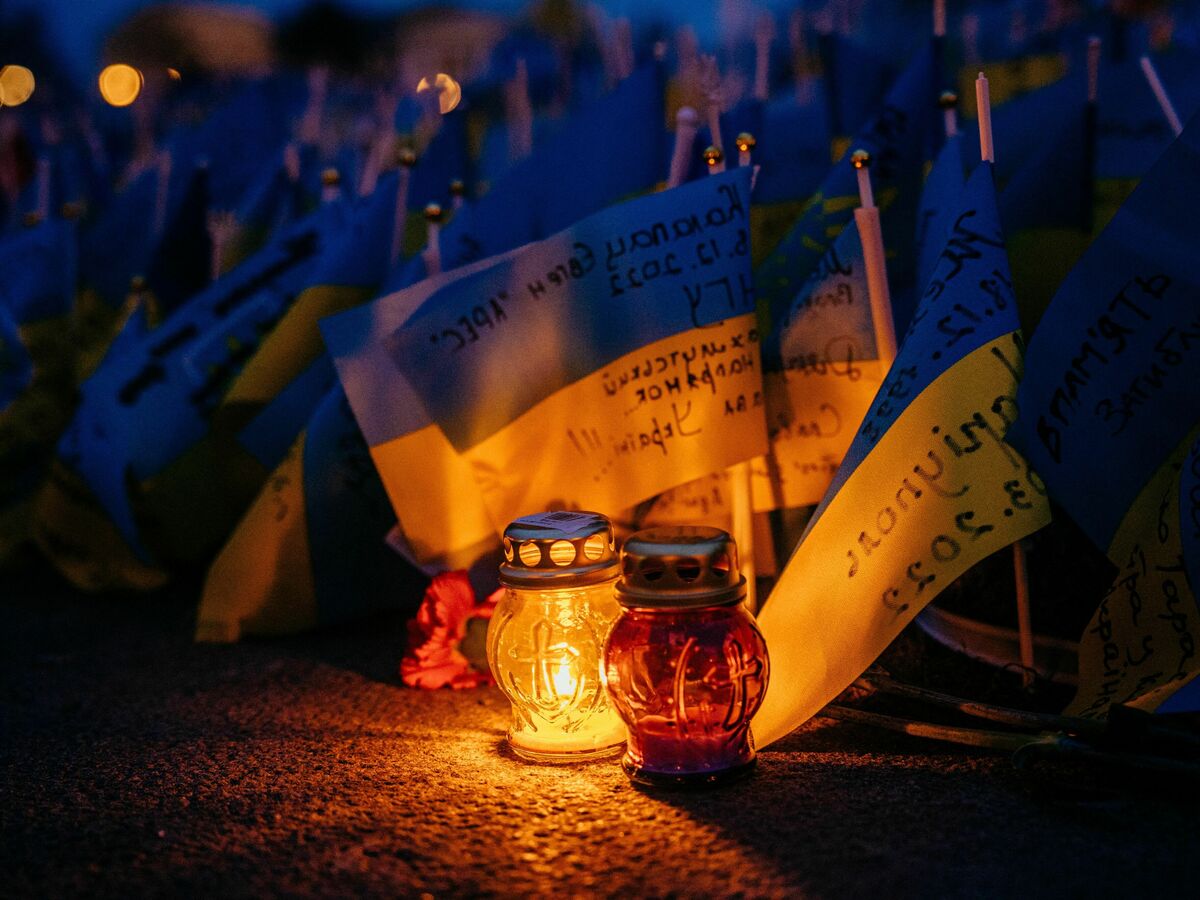
Candles are lit in front of Ukrainian flags in Kyiv on Friday. Each is dedicated to a serviceman killed during the Russian invasion of Ukraine. DIMITAR DILKOFF/AFP via Getty Images hide caption

Candles are lit in front of Ukrainian flags in Kyiv on Friday. Each is dedicated to a serviceman killed during the Russian invasion of Ukraine.
DIMITAR DILKOFF/AFP via Getty ImagesKherson was the the first major Ukrainian city to fall to Russian troops. With deep historical ties to Russia, it was not expected to be a center of resistance.
But an army of citizen spies defied Moscow's expectations, and helped Ukrainian forces liberate the city last November.
A year after Russia launched its invasion, NPR's Joanna Kakissis has the story of Kherson's partisans: teachers and accountants and landscape designers, who became eyes and ears for the Ukrainian military.
Email us at
This episode was produced by Connor Donevan and Chad Campbell, with engineering by Stacey Abbott. It was edited by Nishant Dahiya, Mark Katkov and William Troop. Our executive producer is Sami Yenigun.

 Live Radio
Live Radio